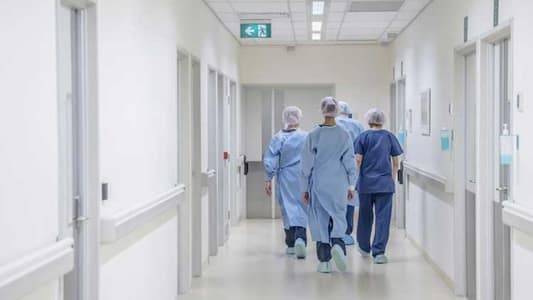The political crisis in Lebanon has impacted the lives and health of citizens, putting hospitals at risk of ceasing operations due to the non-payment of their dues, resulting from the lack of a Cabinet session during the presidential vacancy.
This issue was the focus of a meeting held yesterday, chaired by caretaker Prime Minister Najib Mikati, with the presence of Minister of Health Firas Al-Abyad, Minister of Finance Youssef Khalil, Chairman of the Parliamentary Health Committee MP Bilal Abdullah, and the head of the Hospitals Syndicate, Slimane Haroun. The meeting emphasized the necessity to expedite solving this problem away from sectarian rivalries.
Next week is expected to be decisive in this regard, as hospitals are unable to continue operations and may decide to close after a week if an agreement is not reached, as confirmed by Haroun to "Asharq Al-Awsat." He revealed that he received a promise from Mikati to resolve the issue either by convening a Cabinet session or through a decree signed by the relevant ministers. He emphasized that hospitals have not received their dues for a year and stressed the need to remove political and sectarian disputes from the lives and health of people, which are now at risk and must be prioritized, especially since there are patients who require ongoing treatment, such as dialysis and cancer care.
This problem arises from disagreements over constitutional interpretations among Lebanese factions. While some, led by the "Free Patriotic Movement," believe that the powers of the presidency do not transfer to the caretaker government and that it cannot convene during a presidential vacancy, others, such as Mikati and Speaker of Parliament Nabih Berri, approach the issue differently, asserting that the government can perform its duties, albeit in a limited capacity, by meeting to discuss and approve important laws related to citizens' lives.




